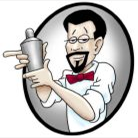I spent the five happiest years of my life in a morgue. As a forensic scientist in the Cleveland coroner’s office I analyzed gunshot residue on hands and clothing, hairs, fibers, paint, glass, DNA, blood and many other forms of trace evidence, as well as crime scenes. Now I'm a certified latent print examiner and CSI for a police department in Florida. I also write a series of forensic suspense novels, turning the day job into fiction. My books have been translated into six languages.
I'm sorry but that can, and has, fill several textbooks. There's just no way for me to summarize it in a paragraph.
There are usually levels of the job, like Tech I, Tech II etc. depending on years of experience that will come with an increase in salary. After that one can progress to supervisory role. But there aren't a lot of steps, really. For instance I have nowhere to go from my current position, and I don't care. I like what I'm doing and have zero interest in being the supervisor.
Yes, all the time. That's part of my job. But that will depend on what your job is, some people work only in the lab, and others work only at crime scenes.
As far as I know since they would all be the same type of cells, they could not be separated.
Bartender
 What's the best way to get a bartender's attention?
What's the best way to get a bartender's attention?
Personal Injury Lawyer
 What's the most frivolous case you’ve handled?
What's the most frivolous case you’ve handled?
Professional Bull Rider
 Have you been seriously injured while bull-riding?
Have you been seriously injured while bull-riding?
School project?Email me at Lisa-black@live.com and I'll send you answers I've accumulated.
That's an excellent question that I wish I had a better answer for. I'm guessing it depends on the interviewer's history and experiences. For instance due to curriculum changes, in my area we actually get much better-trained candidates from the community college and the for-profit local schools than the large, more prestigious university. It depends on what the curriculum entails and how much hands-on work and practice in your specific field (which may be difficult to do in an online course, but if the bricks and mortar schools don't provide it either, then perhaps it makes little difference). If I were you I would detail that as clearly as you can when applying for jobs.
I wasn't aware that there were theories other than: Do the right thing. Don't do the wrong thing.
Figuring out which is which isn't really that hard. Doing it might be, but it's usually not hard to figure out.
Hope that helps!
-OR-
 Login with Facebook
Login with Facebook (max 20 characters - letters, numbers, and underscores only. Note that your username is private, and you have the option to choose an alias when asking questions or hosting a Q&A.)
(A valid e-mail address is required. Your e-mail will not be shared with anyone.)
(min 5 characters)
By checking this box, you acknowledge that you have read and agree to Jobstr.com’s Terms and Privacy Policy.
-OR-
 Register with Facebook
Register with Facebook(Don't worry: you'll be able to choose an alias when asking questions or hosting a Q&A.)